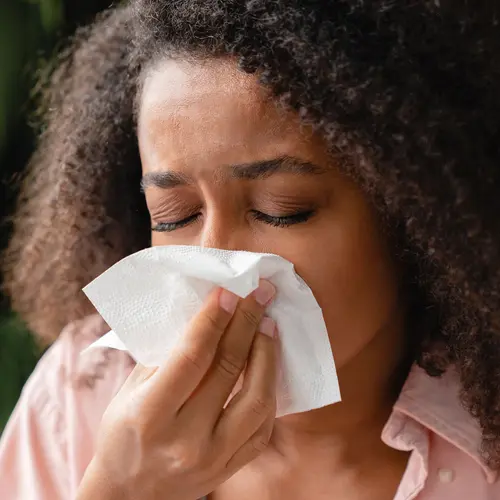Allergies aren’t always to blame for eczema, but the two often go together. Studies show that 1 in 3 infants will have eczema. Here's what you need to know about these conditions in kids, plus advice on how to treat them.
Eczema Facts
- Symptoms include a dry, itchy, scaly, red rash. It may ooze and crust over, especially if your child scratches it.
- Eczema is common on the arms, elbows, legs, knees, hands, and face.
- The rash can be quite irritating. It can make it hard for kids to sleep.
- Soaps and cosmetics, cleaners, wool, dust mites, pollen, pet dander, certain foods, and dry weather can cause flare-ups.
- Eczema won't spread from one part of the body to another, or from one person to another.
- Eczema in kids often comes and goes. Most babies outgrow it by the time they're teens or even earlier.
Learn more about eczema in babies.
How Do Eczema and Allergies Affect Each Other?
- Kids with allergies -- especially to foods like milk and peanuts -- are more likely to have eczema.
- Having parents with allergies or asthma increases a child's risk of eczema.
- Kids with eczema are more likely to get allergies and asthma later in life.
- Keeping your kid away from allergy triggers can ease eczema symptoms.
Read more on skin allergy types and triggers.
How Do You Treat Them?
If your child has symptoms, see a doctor. There are lots of ways to control eczema and allergies.
- Tests. Your doctor may want to test your child for allergies to foods -- like milk, egg, peanut, soy, seafood, and wheat -- and other substances. Positive results from allergy testing need to be confirmed.
- Food elimination diets. If your doctor suggests it, you can cut out common trigger foods, one at a time. That will help you figure out if a food is to blame.
- Ointments and moisturizers. These products can ease mild eczema symptoms. Choose one that’s thick, and put it on right after your child gets out of a bath or shower.
- Medication. Steroid cream, calcineurin inhibitor and PDE4 inhibitor ointments, and Janus kinase (JAK) inhibitor cream can help relieve more severe symptoms.
Get more information on eczema treatment.
Follow these steps to stop the problem before it starts.
- Allergy-proof your home, so your child won't be exposed to high levels of things like dust mites and dander.
- Keep their skin moist. Dry skin can trigger eczema.
- Keep fingernails short. That way, your child is less likely to irritate their skin by scratching. Put socks on your baby's hands to stop scratching when they are asleep.
- Keep your child cool in summer. Hot weather and sweat can make symptoms worse.
- Use non-scented soaps. Avoid harsh cleaners. Chemicals can irritate the skin.
- Dress your child in soft, loose-fitting, cotton clothing. Avoid wool and nylon.
- Protect your child from dry, cold weather. Dress them warmly when it's cold (but don't overheat). Use a humidifier in the winter when the air is dry.
Find out how to improve daily life with eczema.

